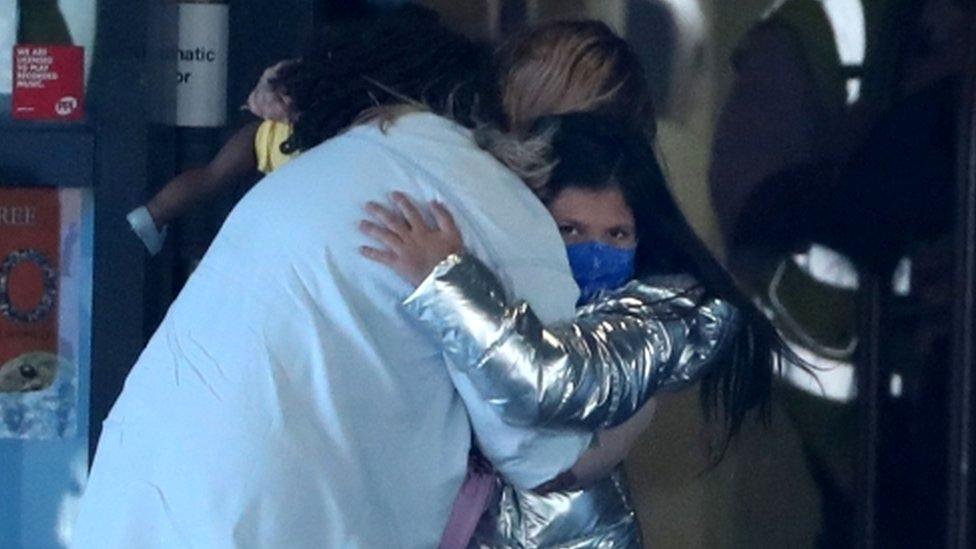Governor Cuomo admits to withholding nursing home deaths
- Published
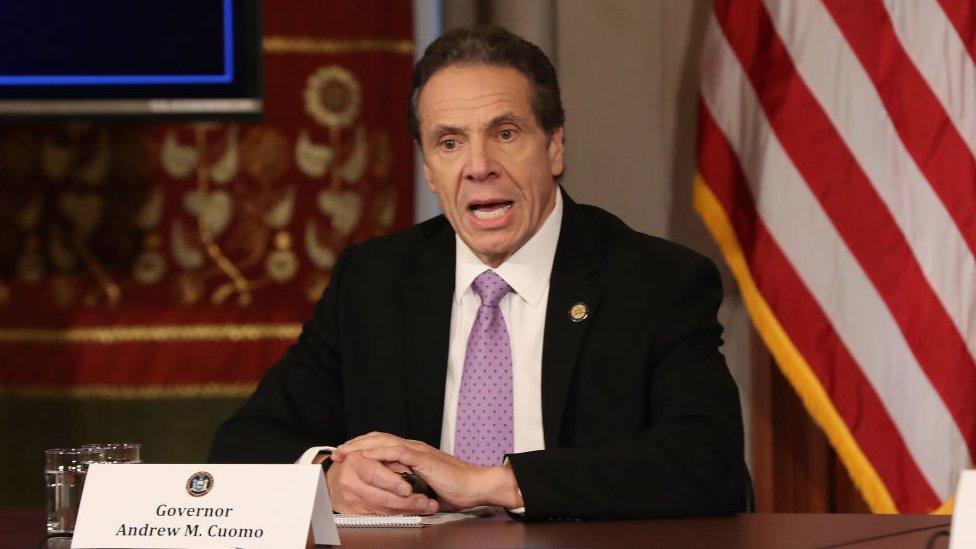
New York Governor Andrew Cuomo has accepted blame - but has not apologised - for a lack of transparency about Covid-19 deaths in nursing homes.
More than 15,000 New Yorkers in care homes have died since the start of the pandemic.
But - until late last month - the state's health department had logged just over 8,500 fatalities.
The governor confirmed the discrepancy in a press conference on Monday.
The initial undercount was partly the result of a controversial policy to exclude residents that died outside of the facilities, including in hospital, from the official numbers, according to a report.
Since the report came out over two weeks ago, the state has added thousands more deaths to its official tally, more accurately reflecting the true death toll of nursing home residents.
Mr Cuomo, a Democrat, has repeatedly defended his handling of nursing homes, often arguing that other states were doing far worse, but his administration has been engulfed by the scandal in recent days.
Last week, in a private conversation leaked to the New York Post, a top aide to Mr Cuomo confessed to covering up the real numbers and withholding the information out of concern the data "was going to be used against us".
On Monday, Mr Cuomo - who has brushed aside criticism for months - acknowledged "a delay" in the reporting of some nursing home deaths.
Calling it a "mistake", he conceded that the failure to answer questions from state lawmakers and the news media had created a void "filled with scepticism, and cynicism, and conspiracy theories which furthered the confusion".
"I take responsibility for that," he said. "Total death counts were always accurate, nothing was hidden from anyone, but we did create the void. And that created pain. And I feel very badly about that."
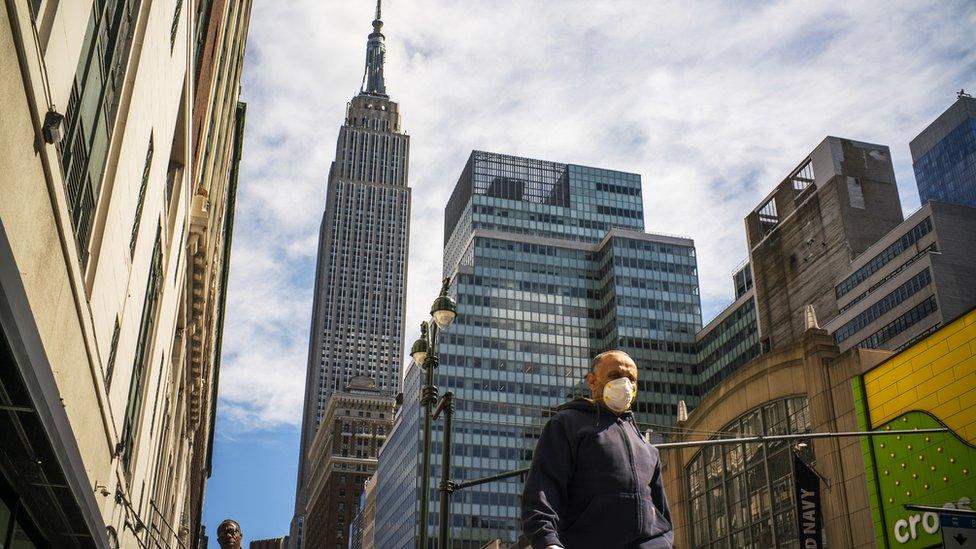
New York has the second highest number of death rate of any US state
When asked if he would say sorry, however, Mr Cuomo hesitated: "Apologise? Look, I have said repeatedly we made a mistake in creating the void."
"We should have provided more information faster," he explained, but his staff was "too focused on doing the job and addressing the crisis of the moment".
Lawmakers from both parties have called for an investigation into the Cuomo administration.


As the coronavirus pandemic was unfolding across the US and New York City was in a public health crisis, Governor Andrew Cuomo presented himself as the cool-headed counterpart to President Donald Trump.
He was taking the threat seriously, not making excuses or engaging in wishful thinking. He was relying on science, not on untested, and unreliable miracle cures.
There was talk among Democrats, for a while, of drafting Cuomo to be the presidential nominee, or at least Joe Biden's running mate.
Almost a year on, however, and the lustre is starting to fade from Cuomo's star.
The state is struggling with when, and how, to reopen in the face of new health threats. And, as is often the case with political scandals, his greatest trouble is as much about the cover-up as the original act.
In this case, Cuomo's administration withheld information about the number of nursing home deaths in the state to deflect attention away from the decisions made regarding the handling and treatment of elderly with Covid-19.
He may have avoided giving politically damaging information to Trump and federal investigators, but he may now find himself in greater danger than if he had been forthcoming at the time.

When did you first say 'coronavirus'?
About a year ago, the pandemic hit. We're asking you to search through old text messages and find the first time the term coronavirus (corona or Covid) came up in your conversations.
What do you remember from that exchange? What were your feelings back then? When did you first realise it was going to be life-altering? We want to hear your story.
Please tell us in the form below or email us at noise@bbc.co.uk, if you can't view the form.
In some cases, your question will be published, displaying your name, age and location as you provide it, unless you state otherwise. Your contact details will never be published. Please ensure you have read our terms & conditions and privacy policy.
Related topics
- Published7 January 2021
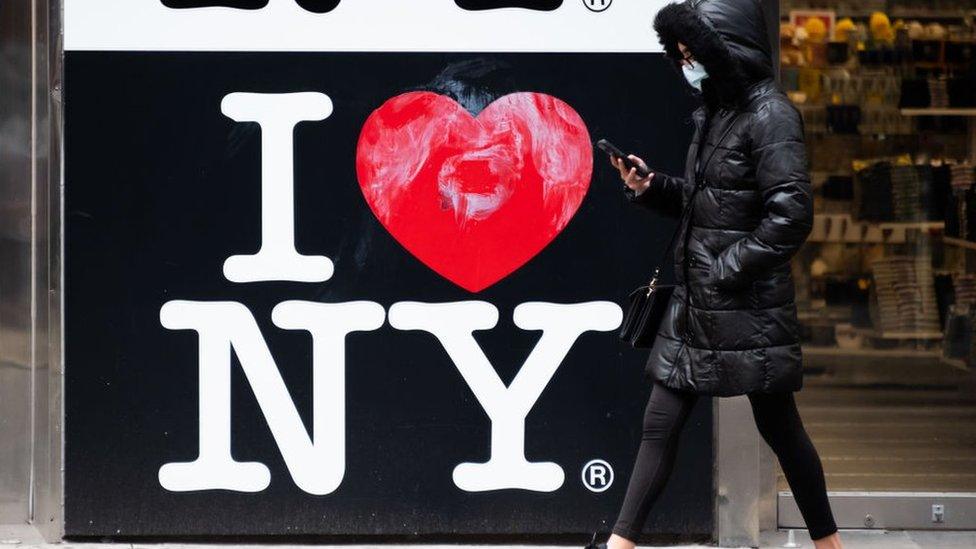
- Published19 February 2021
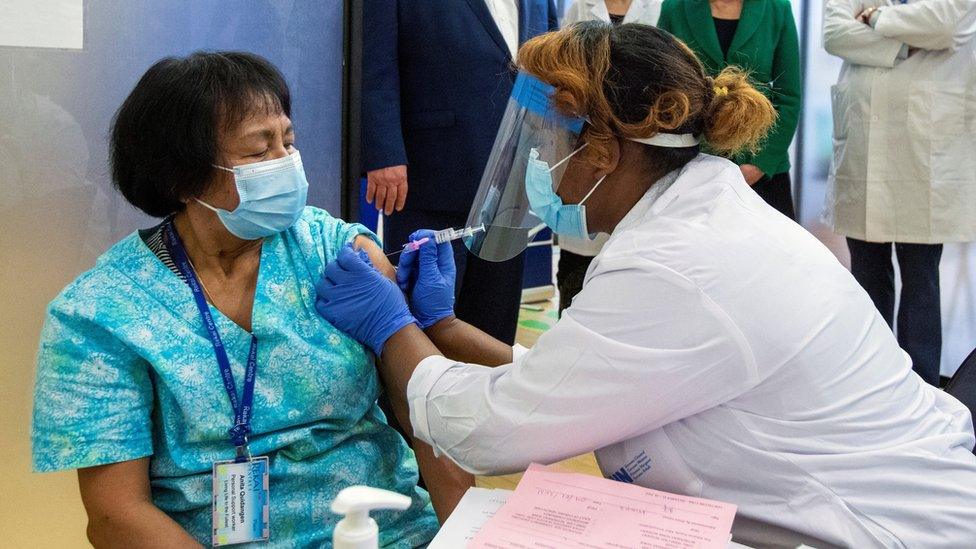
- Published16 February 2021
